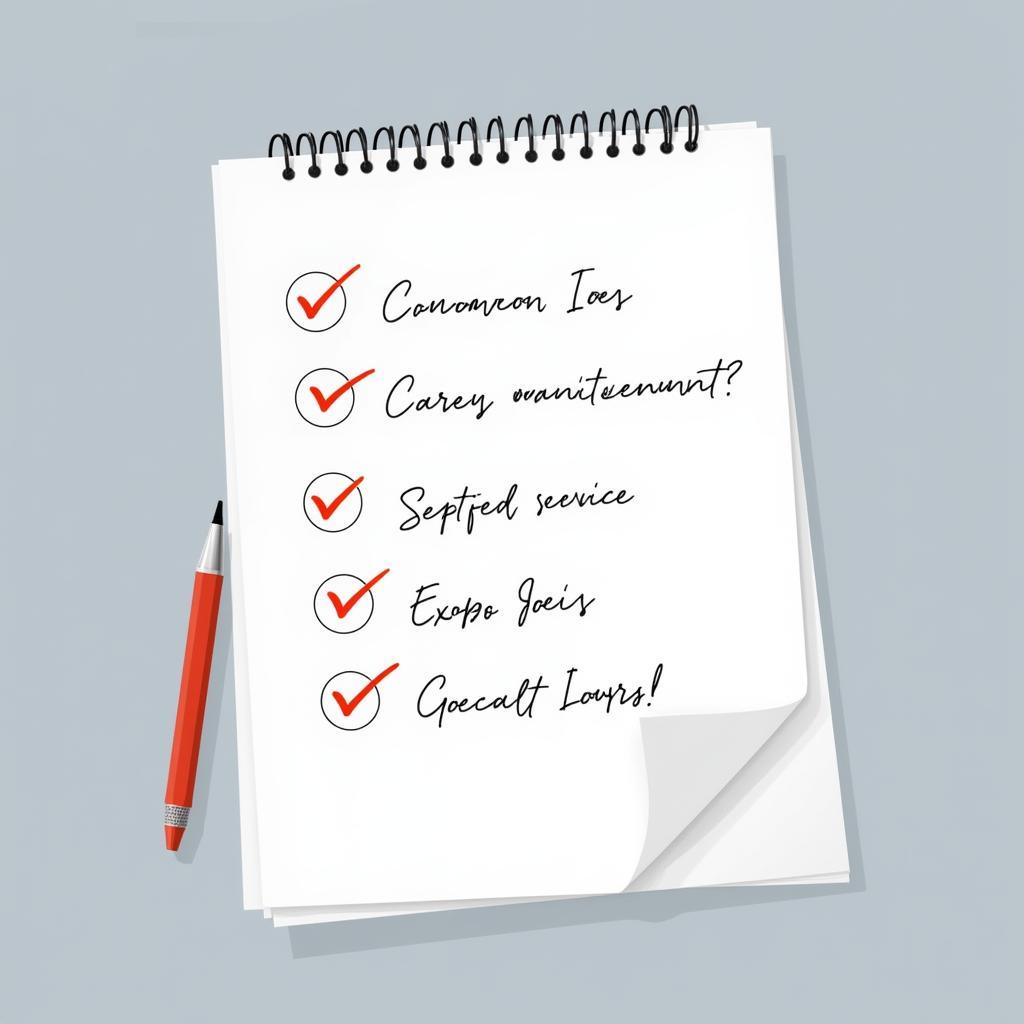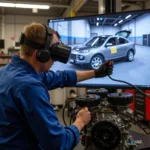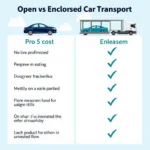When it comes to car maintenance, knowing the difference between primary and secondary services can save you time and money. While primary car services focus on essential components and wear-and-tear items, secondary services are often considered add-ons or are required less frequently. Understanding this distinction can help you prioritize maintenance tasks and keep your vehicle running smoothly. So, which of the following is not a primary car service?
Identifying Primary Car Services
Primary car services are the foundation of preventative maintenance, designed to address the parts of your vehicle that experience the most wear and tear. These services typically follow a recommended schedule outlined in your owner’s manual, often based on mileage or time intervals. Neglecting these essential services can lead to more significant problems down the road, impacting the performance, safety, and lifespan of your vehicle.
Here are some key primary car services:
- Oil Change: This is arguably the most crucial primary car service. Engine oil lubricates moving parts, reduces friction, and helps regulate engine temperature. Over time, oil degrades and loses its effectiveness, making regular oil changes essential for engine health and longevity.
- Filter Replacements: Your car relies on several filters to operate efficiently, including the oil filter, air filter, and cabin air filter. These filters trap contaminants and impurities, preventing them from entering the engine, ventilation system, and passenger cabin. Regular filter replacement ensures optimal performance and air quality.
- Brake Inspection and Service: Your braking system is paramount for safety. Regular brake inspections assess the condition of your brake pads, rotors, calipers, and brake fluid. Timely service, including pad replacements, rotor resurfacing, or fluid flushes, ensures reliable braking performance and peace of mind.
- Tire Rotation and Pressure Check: Maintaining proper tire pressure and rotating your tires regularly ensures even wear and tear, extending the life of your tires and improving fuel efficiency.
- Fluid Checks and Top-ups: Your vehicle relies on various fluids, such as coolant, transmission fluid, power steering fluid, and windshield washer fluid, to function correctly. Regularly checking and topping up these fluids prevents overheating, ensures smooth operation, and keeps your visibility clear.
Delving Deeper: Secondary Car Services
Now that we’ve established the essential primary car services, let’s explore what falls under secondary services.
Secondary services are often performed less frequently than primary services and may be recommended based on specific driving conditions, vehicle age, or manufacturer recommendations. These services can range from routine checks to more involved repairs and replacements:
- Spark Plug Replacement: Spark plugs ignite the air-fuel mixture in your engine’s combustion chamber. While they don’t require as frequent replacement as oil or filters, worn spark plugs can lead to reduced fuel efficiency, engine misfires, and decreased performance.
- Battery Testing and Replacement: Your car battery provides the electrical current needed to start your engine and power various electrical components. Regular battery testing can help identify a weakening battery, allowing for timely replacement and preventing unexpected breakdowns.
- Cooling System Flush: Over time, coolant can degrade and lose its effectiveness, leading to corrosion and overheating. A cooling system flush removes old coolant and replaces it with fresh fluid, protecting your engine from damage.
- Transmission Service: Your transmission is responsible for transferring power from the engine to the wheels. Transmission fluid lubricates and cools the transmission’s internal components. Depending on your vehicle and driving habits, periodic transmission fluid changes or flushes are recommended to ensure smooth shifting and prevent premature wear.
- Belts and Hoses Inspection: Your engine bay is home to various belts and hoses that drive essential components like the alternator, power steering pump, and water pump. These rubber components can crack, dry out, or become loose over time. Regular inspection and timely replacement prevent unexpected failures and costly repairs.
Differentiating and Prioritizing Car Services
While understanding the distinction between primary and secondary car services is crucial, it’s equally important to note that this categorization isn’t always black and white.
- Manufacturer Recommendations: Your owner’s manual is your best guide for determining service intervals. Manufacturers often provide specific guidelines for primary and secondary services based on your vehicle model and anticipated driving conditions.
- Driving Conditions: If you frequently drive in harsh conditions, such as extreme heat, cold, or dusty environments, some secondary services, like air filter replacements or cooling system flushes, might be required more frequently.
- Vehicle Age and Mileage: As your vehicle ages or accumulates mileage, certain secondary services, like spark plug replacements or transmission service, become increasingly important to address wear and tear.
Expert Insight:
“Many car owners underestimate the importance of a comprehensive vehicle inspection,” says John Smith, Senior Automotive Technician at XYZ Auto Repair. “While regular maintenance based on mileage is essential, a thorough inspection can uncover potential issues in their early stages, saving you from costly repairs down the road.”
Conclusion:
Distinguishing between primary and secondary car services is fundamental for responsible car ownership. While primary services form the cornerstone of routine maintenance, secondary services should not be overlooked. By following the manufacturer’s recommendations, considering your driving conditions, and staying aware of your vehicle’s age and mileage, you can create a comprehensive maintenance plan that keeps your car running smoothly for years to come.
FAQs
1. What happens if I delay a primary car service?
Delaying primary services can lead to significant issues like engine damage, decreased fuel efficiency, and compromised safety. It’s crucial to adhere to the recommended service intervals.
2. How often should I get my car serviced?
Refer to your owner’s manual for specific service intervals. Generally, primary services are recommended every 3,000-5,000 miles or 3-6 months, while secondary services have varying intervals.
3. Can I perform car services myself?
While some routine maintenance tasks, like checking fluids, can be done at home, it’s always best to leave complex services to qualified mechanics.
4. How can I find a reliable mechanic?
Ask for recommendations from friends, family, or online reviews. Look for certified mechanics with experience working on your vehicle make and model.
5. What are some signs that my car needs immediate service?
Unusual noises, warning lights on the dashboard, fluid leaks, and changes in vehicle performance are all signs that your car requires immediate attention.
Need help finding the right car service for your needs? Contact us via WhatsApp: +1(641)206-8880, Email: [email protected]. Our team is available 24/7 to assist you.



